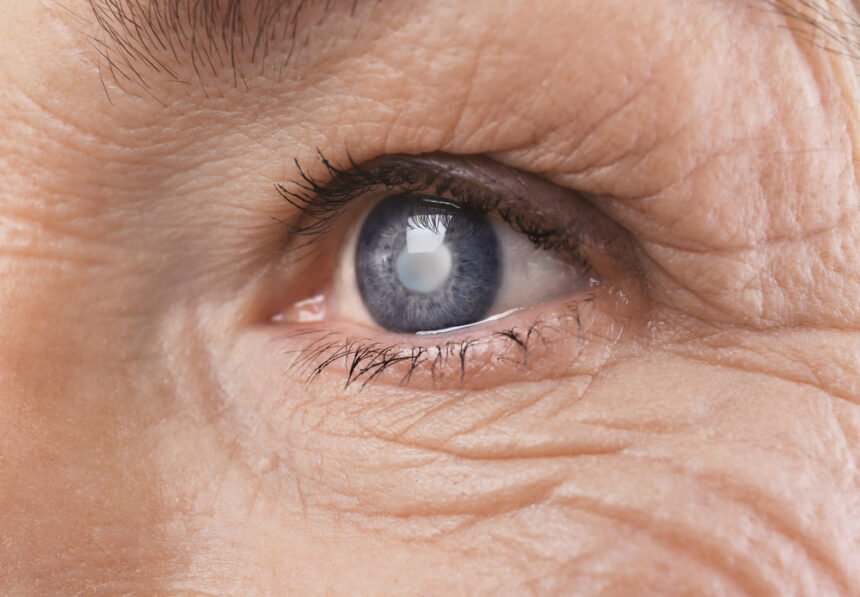While cataract surgery may be tried-and-tested and relatively well-known in the UK, it’s not particularly common amongst people aged 40 or under.
In fact, 95% of cataracts in the UK are thought to be age-related, with symptoms tending to develop after 40 and as we continue to age and grow older. This is borne out by the numbers, with the expected rate of cataract surgery estimated at 530 per 1,000 (0.53%) for the overall population and 3,200 per 100,000 (3.2%) for the 65 and older age demographic.
If you do have to undergo this surgery, however, you’ll probably spend a great deal of time going through the pre-operative preparations with your consultant. In this post, we’ll discuss how cataract surgery works, what to expect after treatment and how to plan for the post-surgery recovery process.
How does cataract surgery work?
Cataract surgery involves removing the cloudy lens and replacing it with a custom made one. You will be put under local anaesthetic. A small incision will be made in the side of the eye under 2.8mm. The incision itself should heal naturally and not require any stiches or anything else. Phacoemulsification is the process that the cataract is removed. Ultrasonic waves are used to liquify the cloudy contents of the lens before a suction tube removes the rest. An Intraocular lens implant is then put in your eye. In total this surgery only takes 10 minutes, but you could see yourself being in the clinic for up to four hours, this is to allow time to discuss the full procedure and allow adequate preparation time as well as any questions you may have for your surgeon. After care recovery will need to be discussed also.
How Long Does Recovery Take and How Can You Prepare for a Successful Post-op Experience?
Relatively speaking, the recovery time for cataract surgery is short. With vision showing a significant improvement within 24 hours. More specifically, any soreness or discomfort should disappear within a couple of days of the operation, while your eyes should return to full functionality within a period of between four to six weeks. Its recommended that you should take between 3-5 days off work to recover and relax from this operation.
You can expedite this process by being proactive and adhering to the following post-surgery care instructions, which should be provided by your healthcare provider prior to the treatment.
1. Take Practical Steps to Minimise Your Post-Op Activities
It’s crucial that you minimise your workload in the immediate aftermath of the operation, and this process should start from the moment that you leave the hospital.
So, make sure that you designate transport after surgery, as even after your discharge you’ll still be sedated and your eye will be bandaged (limiting your vision).
Also, try to avoid any heavy lifting or bending for up to a week after surgery, particularly as any limited vision that you experience will impact on your balance and could make the recovery time that much longer. Also, it will be up to your optometrist to confirm when driving standards have been met and you can get behind the wheel again as your eye sight will need to meet the legal driving requirements.
2. Stay Out of Pools and Regulate Your Exercise for the First Week
When it comes to exercise, you’ll need to regulate your activity in the first seven days following the operation.
You should definitely avoid swimming pools during this time frame, as these entities remain a prominent breeding ground for disease and will increase the risk of your eye becoming infected while it recovers.
While you can resume light, indoor exercise within a few days of returning home, you should refrain from intense or strenuous physical activity for at least a week following surgery. The reason for this is two-fold, as it minimises the risk of incurring injury as a result of your impaired vision, while it’s known that some exercises have the potential to increase eye pressure and trigger potentially damaging complications.
High intensity exercise should definitely be avoided for at least one week after surgery, while you may want to consult with your GP before resuming such activities.
3. Listen to Your Doctor’s Instructions
The latter point is particularly important, as you should definitely follow the advice of your primary eye-care provider and GP in the aftermath of your cataract surgery.
While this information has been largely covered above, it’s imperative that you follow your doctor’s instructions closely and also ask any questions that you may have concerning your surgery.
Also, we’d recommend erring on the side of caution in the week or two following your cataract surgery, as this will allow sufficient time for your eye to heal and your vision to return to normal!









